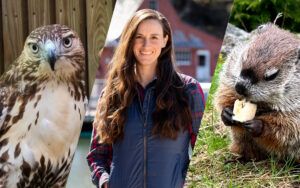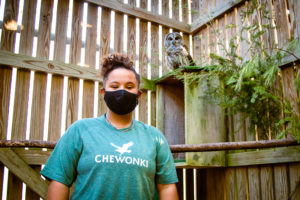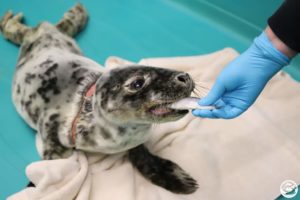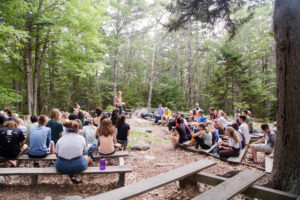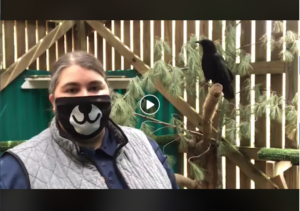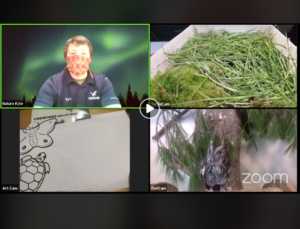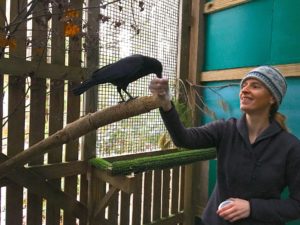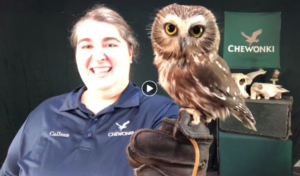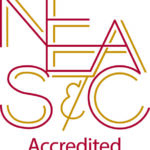Like a chameleon cycling through a rainbow of colors, the Chewonki Traveling Natural History Program is adapting to the era of covid. Although our small fleet of vehicles (usually seen zipping around New England) hasn’t left the parking lot in some time, our wildlife educators have continued to delight kids and families with the help of an unlikely partnership – the Maine National Guard Child and Youth Services (CYS).
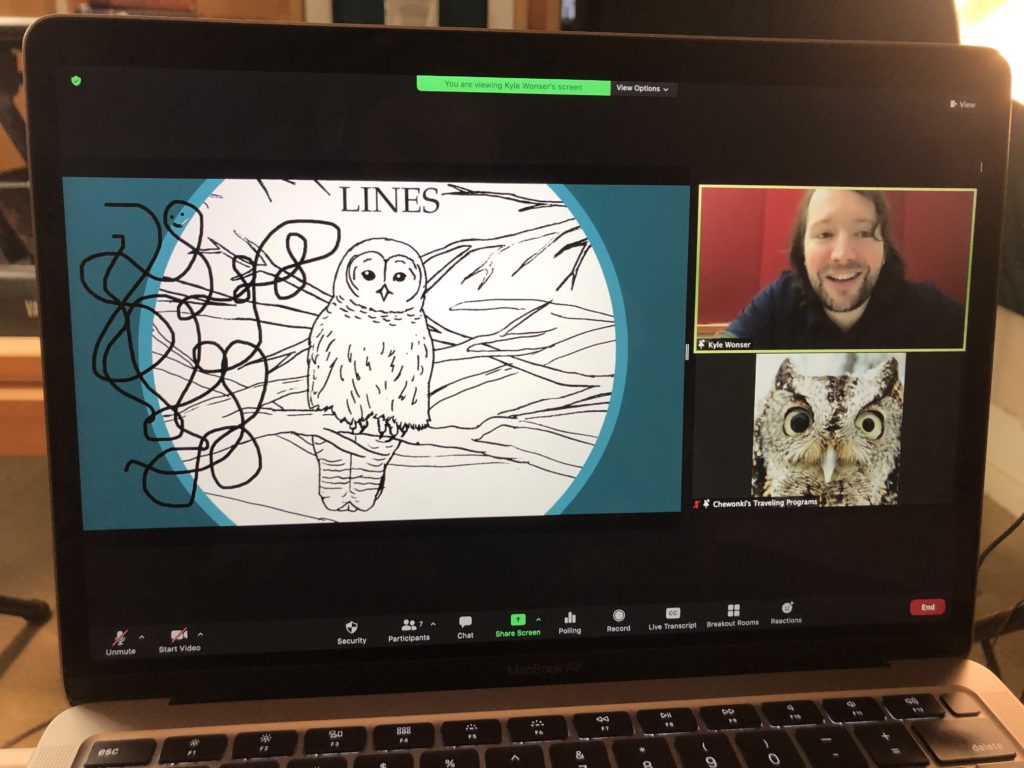
From September 26th to December 12th, we’ve delivered back-to-back virtual presentations to military families across the state each Saturday morning. “The first presentation starts at 8:00 am, and kids show up in their PJs like they’re watching Saturday morning cartoons,” says Director of Maine School Programs Emma Balazs.
CYS strives to build community and a sense of belonging amongst national guard youth. The pandemic has been a double blow, in this sense. It has increased the pressure on military families and made it more challenging to connect around their shared experiences. “National Guard families are experiencing the same struggles that all Maine families are facing. In addition, as is the case with other state or federal missions, guardsmen strike a unique balance of family, civilian work, and military work that they must juggle,” writes Elizabeth Marcotte, Lead Child And Youth Program Coordinator For CYS. Attending a virtual presentation provides a bit of normalcy; “seeing a familiar face over zoom is really valuable right now,” says Balazs.
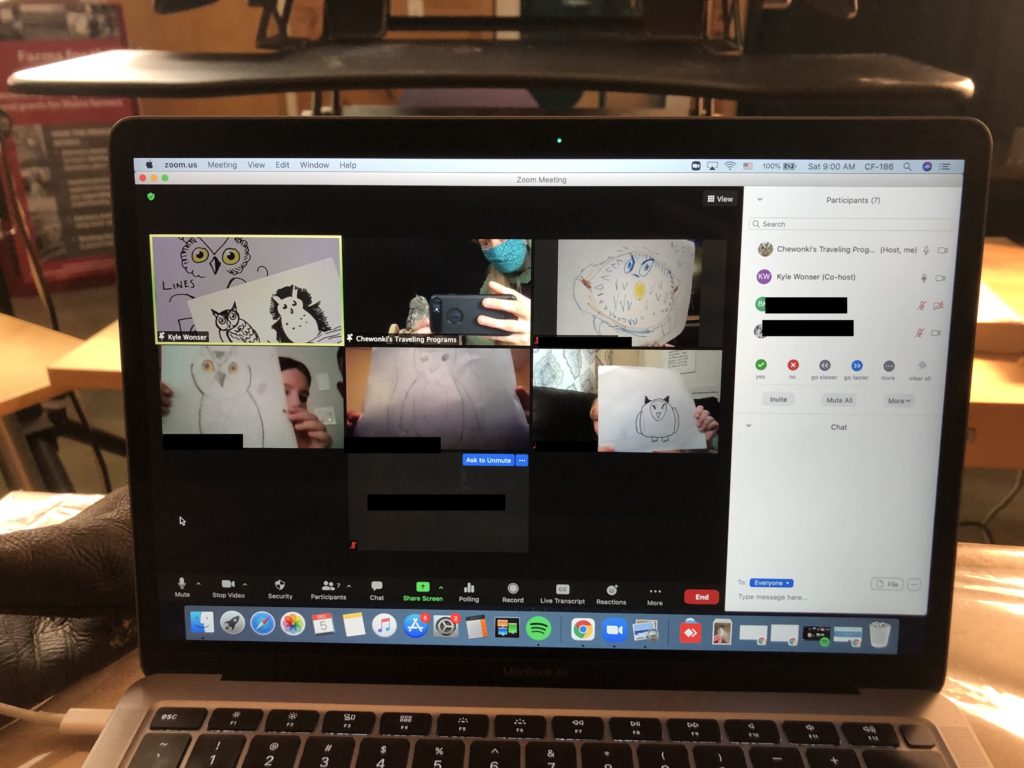
The partnership has provided a bit of valuable normalcy for our educators as well. “It feels a lot closer to what we usually do,” says Balazs. “When we’re able to see students for consecutive weeks, it allows us to provide a deeper educational experience. We’re able to build on vocabulary and concepts over time.” Extension lessons encourage kids to keep learning in-between meetings – like owl masks that kids can color themselves.
The presentations’ intergenerational nature, with parents and children watching together, has been an additional bonus. “It’s really exciting to teach family units,” says Balazs. “When parents review and discuss the material, we can make a larger impact.”
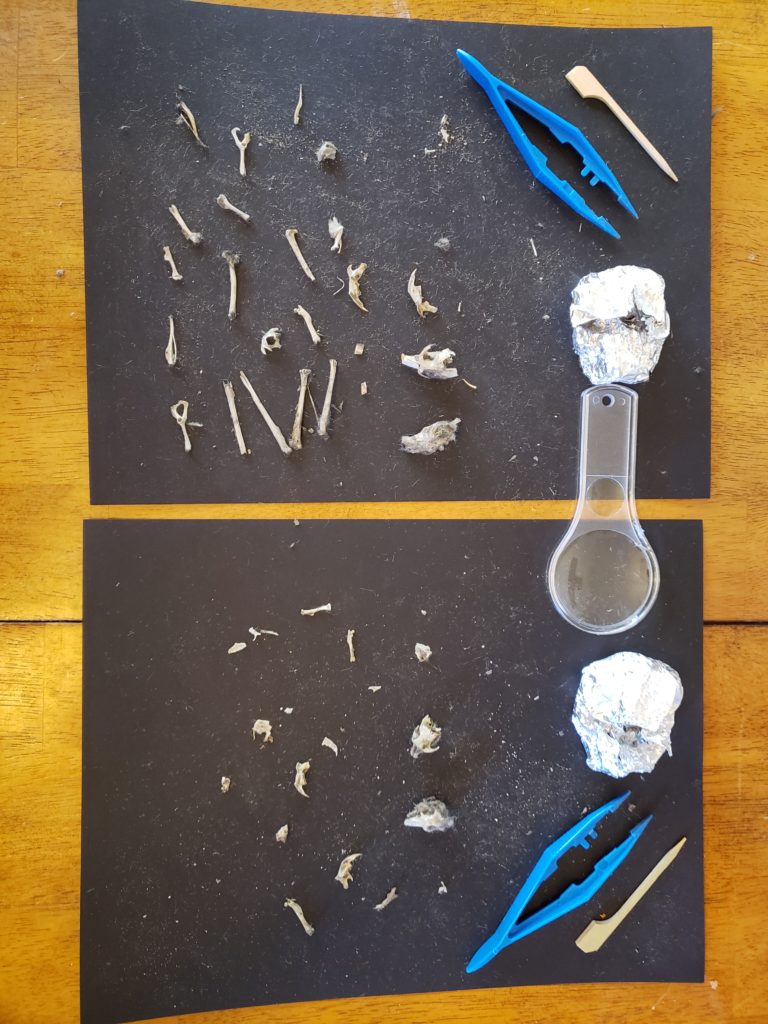
Our educators’ enthusiasm for nature is contagious. One family showed up for the Halloween presentation in October – dissecting owl pellets – dressed in skeleton t-shirts. “For that lesson, we mailed pellets to each family so they could follow along at home,” says Balazs. Families brought their owl masks and puppets (an extension activity from an earlier lesson) as well.
Virtual presentations can’t replace our interactive in-person events with live animal ambassadors. Still, “it’s been a real joy,” says Balazs. Plus, the work keeps our presentation skills polished for when schools and libraries welcome guest educators again. And, it’s an honor to support the hardworking people who’ll be helping with the Covid-19 vaccine roll-out in the coming months.
